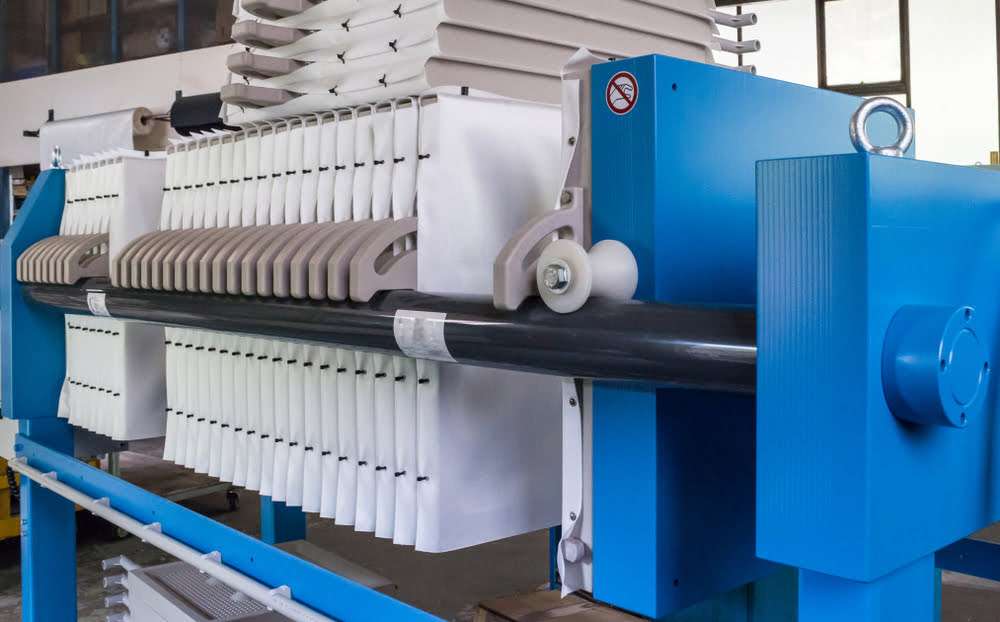Filter presses have become an integral part of numerous industries due to their ability to efficiently separate solids from liquids. They offer a range of advantages, from cost savings to environmental sustainability. In this article, we will explore the benefits of using a filter press and delve into its various applications.
Introduction
Filter presses are specialized equipment used for solid-liquid separation in industries such as mining, chemical processing, and waste management. They operate by applying pressure to a slurry mixture, forcing the liquid to pass through filter media while retaining the solid particles. This process results in a dewatered cake and clarified filtrate.
What is a Filter Press?
A filter press is a batch operation device that consists of a series of filter plates with filter cloths in between. These plates are arranged in a stack and are held together under pressure. The slurry is pumped into the filter press, and the solids are retained while the liquid passes through the filter media.
How Does a Filter Press Work?
When the slurry enters the filter press, the solids start accumulating on the filter cloths, forming a filter cake. As more slurry is pumped into the press, the pressure increases, further compressing the filter cake. This pressure facilitates the separation of the liquid from the solids, resulting in a clear filtrate.
The filter press typically operates in cycles. Once the filtration process is complete, the plates are separated, and the filter cake is discharged. The filter cloths are then cleaned, and the plates are reassembled for the next cycle.
Benefits of Using a Filter Press
Efficient Solid-Liquid Separation
One of the primary advantages of using a filter press is its efficiency in solid-liquid separation. The combination of pressure and filter media effectively separates the solids from the liquid phase. This ensures a high-quality filtrate and a dewatered cake with reduced moisture content.
Cost Savings
Filter presses offer significant cost savings compared to other separation methods. By efficiently dewatering the slurry, filter presses reduce the volume of liquid waste, resulting in lower disposal costs. Additionally, the drier filter cake produced by a filter press reduces transportation costs.
Environmental Sustainability
In today’s environmentally conscious world, filter presses play a crucial role in promoting sustainability. By reducing the volume of liquid waste, filter presses minimize the environmental impact associated with disposal. The drier filter cake also reduces the demand for natural resources and energy required for further drying processes.
Versatility and Customization
Filter presses can be customized to suit specific process requirements. Various filter media options are available, including cloth, paper, and metal screens, allowing the filter press to handle a wide range of applications. The size and configuration of the filter press can also be tailored to accommodate different throughput and space constraints.
Improved Productivity
With their efficient operation and automation capabilities, filter presses enhance productivity in industrial processes. They can handle large volumes of slurry and offer shorter cycle times compared to alternative methods. Additionally, filter presses require minimal operator intervention, freeing up resources for other tasks.
Applications of Filter Press
Filter presses find application across various industries where solid-liquid separation is necessary. Some notable applications include:
Mining and Mineral Processing
In the mining industry, filter presses are used for dewatering mineral concentrates and tailings. They help recover valuable minerals and reduce the moisture content of the final product, making it easier to handle and transport.
Chemical Industry
Chemical processes often produce slurry mixtures that require separation. Filter presses are utilized to clarify liquids, recover valuable chemicals, and dewater chemical intermediates or final products.
Food and Beverage
The food and beverage industry employs filter presses for the clarification of liquids such as fruit juices, wine, and edible oils. Filter presses help remove impurities, improve product quality, and extend shelf life.
Pharmaceuticals
Filter presses play a crucial role in pharmaceutical manufacturing, where separation and purification are essential. They are used for filtering active pharmaceutical ingredients, recovering solids from process streams, and clarifying liquids.
Waste Management
Filter presses are widely used in waste management facilities for treating industrial sludge and municipal wastewater. By dewatering the sludge, filter presses reduce the volume of waste, making it more manageable and cost-effective to dispose of.
Factors to Consider When Choosing a Filter Press
When selecting a filter press for a specific application, several factors should be taken into account. These include the nature of the slurry, desired throughput, required cake moisture content, and available space. Consulting with a filtration expert can help determine the most suitable filter press for a given process.
Conclusion
Filter presses offer numerous benefits across various industries. They provide efficient solid-liquid separation, resulting in cost savings, environmental sustainability, and improved productivity. With applications ranging from mining to food and beverage, filter presses have become indispensable in many processes. When choosing a filter press, it’s crucial to consider the specific requirements of the application to ensure optimal performance and desired outcomes.

As the editor of the blog, She curate insightful content that sparks curiosity and fosters learning. With a passion for storytelling and a keen eye for detail, she strive to bring diverse perspectives and engaging narratives to readers, ensuring every piece informs, inspires, and enriches.










